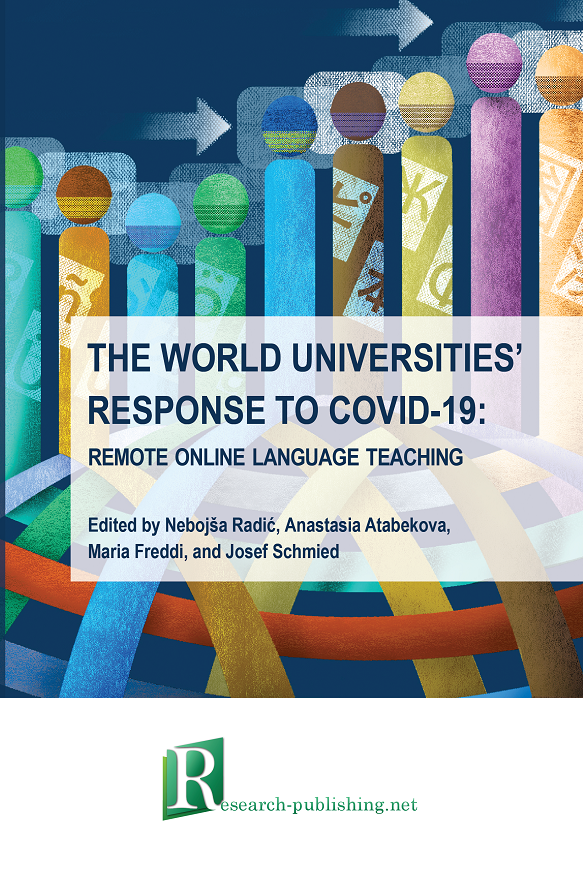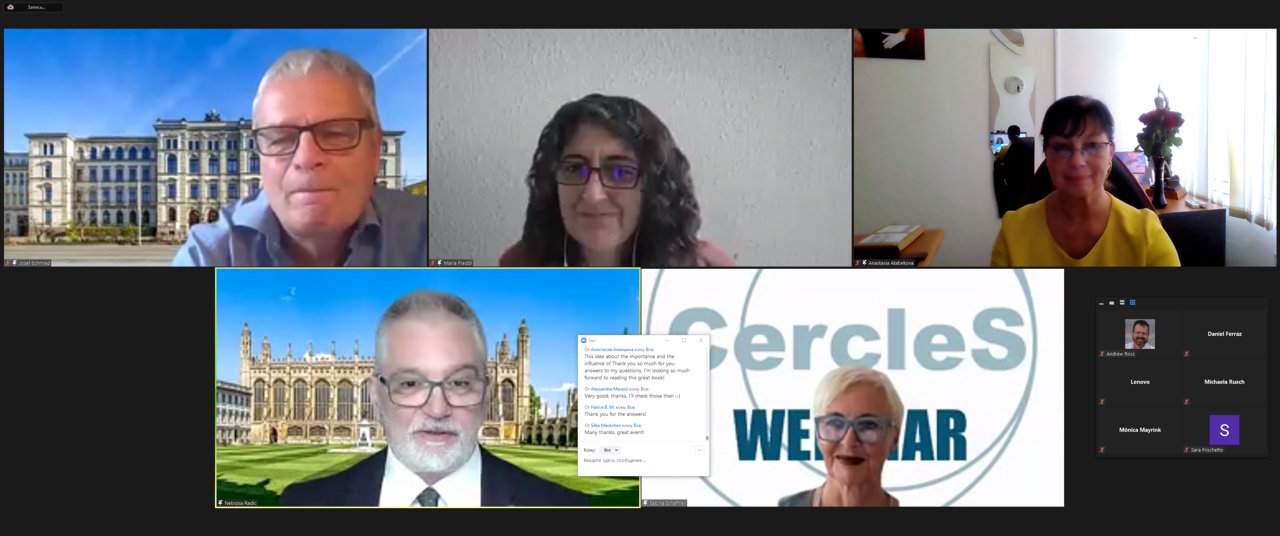Multilingual Education during COVID-19: University Teachers from Several Continents and 18 Countries Explored Common and Specific Features of Remote Training

The results of the project are presented in the collective monograph "The world universities’ response to COVID-19: remote online language teaching»". The Issue compiled research reports on universities’ experiences in foreign language training for language and non-language-students during the 2020 period of the COVID-19 pandemic.
The presentation of the research project findings was hosted by the European Confederation of Language Centers in Higher Education (CercleS). Its distinguished President Dr. Sabina Schaffner kindly agreed to write the foreword and introduce the book at its webinar-mode launch. The event attracted about 150 participants from over 30 countries, including the RUDN language teachers from different departments, institutes, and faculties.
The research project was initiated, and the monograph publication was co-sponsored by the RUDN University and the Cambridge University Language Center. The monograph with the results of the project was published in the publishing house Research-publishing.net (France, Voillans) owing to the financial support of the two universities, with the involvement of interested specialists-representatives of universities in different countries.
Doctor Nebojša Radić, the Director of Cambridge University Language Programme (CULP), Professor Anastasia Atabekova, the RUDN Vice Rector for Multilingual Development, Professor Maria Freddi (University of Pavia, Italy), and Professor Josef Schmied (Chemnitz University of Technology, Germany) integrated their efforts as co-editors of the monograph and gatherers of external reviewers’ pool, once a lucky search of the mentioned team for university colleagues passionate for language training resulted in a collection of 23 chapters from 18 countries and several continents, including Africa, Americas, Asia, Europe, and Oceania.
The chapters explore a number of research questions. Including decision-making process in shifting to remote on-line teaching; driving forces for change in terms of technology, administration, and pedagogy combination; issues of tailoring traditional pedagogical approaches (interactivity, task-based and learner -centered background) to remote online teaching; on-line remote teaching capacity to cater for the diversity of student body; emerging methodological developments, their common and specific patterns.
RUDN University contributed to the data with the chapter under the title Tracks for Russian university students’ multilingual development within remote education during the pandemic, written by Anastasia Atabekova, Alexander Belousov, and Oleg Yastrebov. The chapter provides a comprehensive picture of Russian higher education prompt response and thoughtful polices during the current pandemic through the lenses of RUDN Law institute language education activities.
The project data reveals a societal relevance of the remote on-line foreign language teaching during the pandemic. Examples of practices from different countries presented in the monograph chapters confirm that respective activities contribute to ensuring and fostering academic community resilience and adaptability in case of health-care emergency.
"This collection of case studies is special for several reasons. Firstly, because of the geographical and institutional diversity of the authors, bringing together experiences of teaching under COVID-19 restrictions in the university language classroom from 18 countries and five continents. Secondly, the publication is interesting because of the variety of case studies that testify to different strategies and emphases in dealing with pandemic-related challenges. Finally, the case studies collected strikingly demonstrate the creative responses of language teachers in a variety of contexts to meet the challenges of the pandemic crisis," said Dr Sabina Schaffner, president of CercleS, Director of the University of Zurich and ET Zurich Language Centre
"The research data confirms that the global networking of enthusiastic language professionals contributes to awareness raising and dissemination of education promising practices, fosters multilingual and intercultural collaboration among university leadership, administration, faculty, and students at times of the pandemic uncertainty," added Prof. Anastasia Atabekova, RUDN Vice-rector for Multilingual Development.

In 2024, RUDN started accepting applications for the new annual Prize for Scientific Achievement in Chemistry. The award was established to honour contributions to fundamental and applied research, as well as merit in achieving the UN Sustainable Development Goals.
We continue to share the stories of front-line soldiers who created the Peoples’ Friendship University. Georgy Bruchinsky was born in 1917, graduated from the Leningrad Forestry Academy in 1939, and in 1941 graduated from the basic faculty of the Ivanovo Military Political School.
On the eve of Victory Day, we share the stories of front-line soldiers who, after the Great Patriotic War, participated in the creation of the Peoples' Friendship University and educated a new generation of students.
In 2024, RUDN started accepting applications for the new annual Prize for Scientific Achievement in Chemistry. The award was established to honour contributions to fundamental and applied research, as well as merit in achieving the UN Sustainable Development Goals.
We continue to share the stories of front-line soldiers who created the Peoples’ Friendship University. Georgy Bruchinsky was born in 1917, graduated from the Leningrad Forestry Academy in 1939, and in 1941 graduated from the basic faculty of the Ivanovo Military Political School.
On the eve of Victory Day, we share the stories of front-line soldiers who, after the Great Patriotic War, participated in the creation of the Peoples' Friendship University and educated a new generation of students.